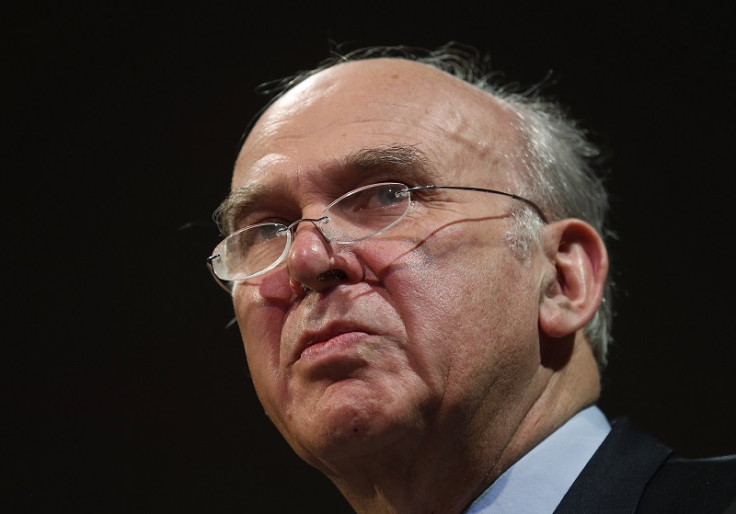UK Minimum Wage: Low Pay Commission Suggests Above-Inflation 3% Hike

The UK's national minimum wage should rise by 3% in October to £6.50 an hour, the Low Pay Commission has suggested.
Chancellor George Osborne had written to the LPC suggesting an above-inflation rise in minimum wage, but the recommendation falls short of the £7 he had floated as a possibility.
Business Secretary Vince Cable unveiled the LPC's recommendation in the House of Commons. It will be the first real-terms increase in the minimum wage since 2008, when the world was in the grip of a financial crisis.
"This is a welcome increase in the minimum wage, which starts to recover some of the ground it has lost since 2008," said Frances O'Grady, general secretary of the Trades Union Congress (TUC).
"We hope this is the first in a series of bolder increases that will give real help to the low paid, and not just a pre-election boost."
Wages are in real terms decline as price inflation outpaces pay growth, squeezing the finances of hard-press households across the country.
Total pay grew by 1.1% on average in the three months to December, according to the Office for National Statistics (ONS). Inflation fell below the Bank of England's 2% target for the first time in four years during January, hitting 1.9%.
The LPC is a public body set up to conduct research on the minimum wage in the UK and make a suggestion each year on how much it should rise by.
"A 3% rise recognises the improvements we're currently seeing in the economy," said Katja Hall, chief policy director at the Confederation of British Industry (CBI), Britain's biggest business lobbyist.
"The LPC has made a sensible judgement on the increase, and not recommended an unaffordable rise that would put jobs at risk."
As it stands, the national minimum wage for those aged over 21 is £6.31 an hour and is paid to around 1.35 million workers.
Osborne said he wanted an above-inflation increase in the minimum wage "because the economy can afford it".
The chancellor said the coalition government's austerity programme of public spending cuts has "rescued the country from the brink of disaster and got us into a position where we can now see the minimum wage going up for people".
"More broadly, I want living standards to go up for the whole country as we fix the economy," he added.
The cost of living in the UK will likely be a central theme in the political campaigns ahead of the 2015 general election.
Ed Miliband, leader of the opposition Labour party, said what he dubs the cost of living crisis is the single biggest challenge facing the UK.
© Copyright IBTimes 2025. All rights reserved.






















